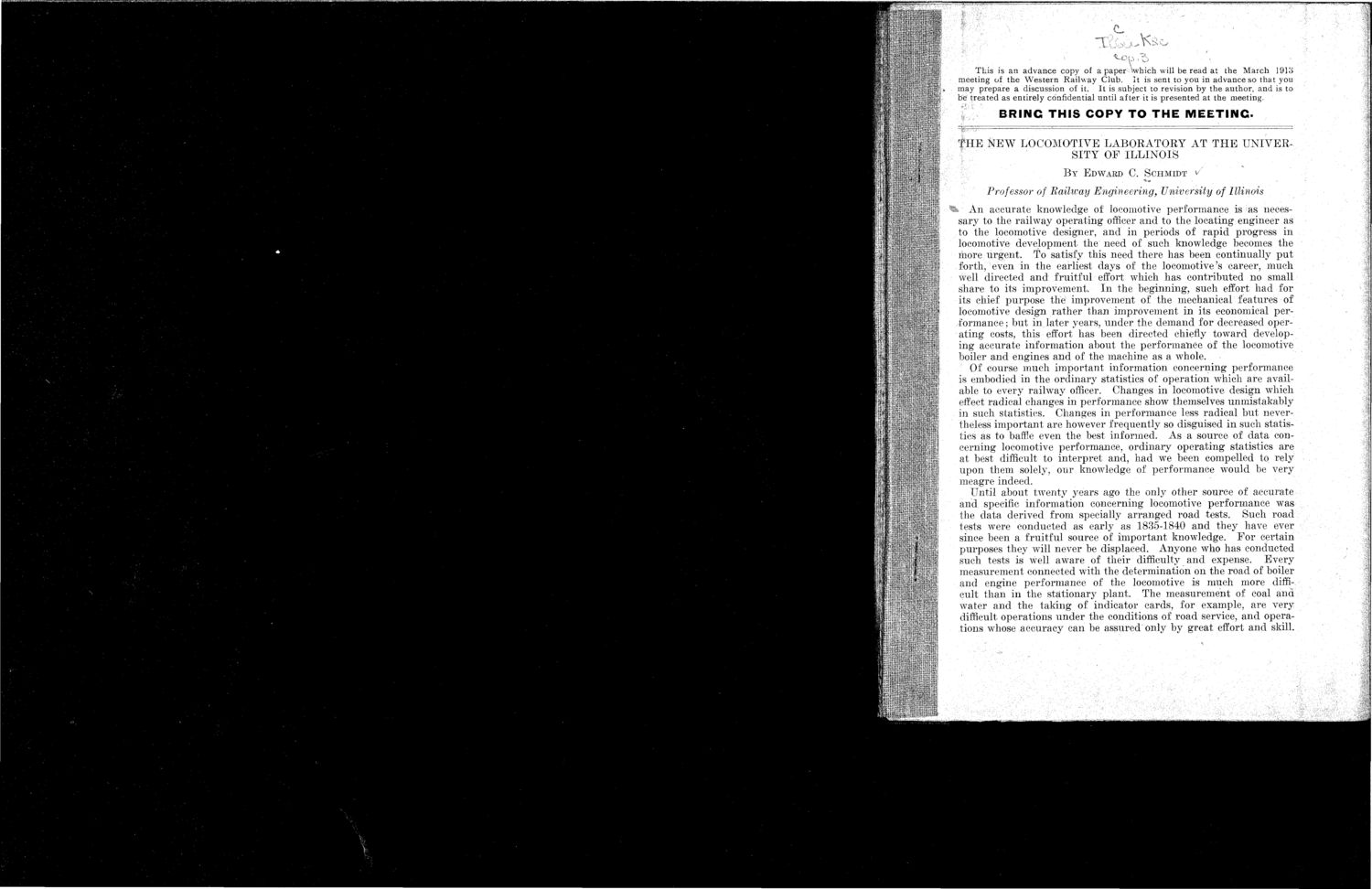| |
| |
Caption: Dedication - Locomotive Testing Laboratory (1913)
This is a reduced-resolution page image for fast online browsing.

EXTRACTED TEXT FROM PAGE:
This is an advance copy of a paper which will be read at the March 191(5 meeting of the Western Railway Club. It is sent to you in advance so that you may prepare a discussion of it. It is subject to revision by the author, and is to be treated as entirely confidential until after it is presented at the meeting. BRING THIS COPY TO THE MEETING. THE NEW LOCOMOTIVE LABORATORY AT THE UNIVERSITY OF ILLINOIS B Y EDWARD C. SCHMIDT V Professor of Railway Engineering, University of Illinois An accurate knowledge of locomotive performance is as necessary to the railway operating officer and to the locating engineer as to the locomotive designer, and in periods of rapid progress in locomotive development the need of such knowledge becomes the more urgent. To satisfy this need there has been continually put forth, even in the earliest days of the locomotive's career, much well directed and fruitful effort which has contributed no small share to its improvement. In the beginning, such effort had for its chief purpose the improvement of the mechanical features of locomotive design rather than improvement in its economical performance; but in later years, under the demand for decreased operating costs, this effort has been directed chiefly toward developing accurate information about the performance of the locomotive boiler and engines and of the machine as a whole. Of course much important information concerning performance is embodied in the ordinary statistics of operation which are available to every railway officer. Changes in locomotive design which effect radical changes in performance show themselves unmistakably in such statistics. Changes in performance less radical but nevertheless important are however frequently so disguised in such statistics as to baffle even the best informed. As a source of data concerning locomotive performance, ordinary operating statistics are at best difficult to interpret and, had we been compelled to rely upon them solely, our knowledge of performance would be very meagre indeed. Until about twenty years ago the only other source of accurate and specific information concerning locomotive performance was the data derived from specially arranged road tests. Such road tests were conducted as early as 1835-1840 and they have ever since been a fruitful source of important knowledge. For certain purposes they will never be displaced. Anyone who has conducted such tests is well aware of their difficulty and expense. Every measurement connected with the determination on the road of boiler and engine performance of the locomotive is much more difficult than in the stationary plant. The measurement of coal and water and the taking of indicator cards, for example, are very difficult operations under the conditions of road service, and operations whose accuracy can be assured only by great effort and skilL
| |